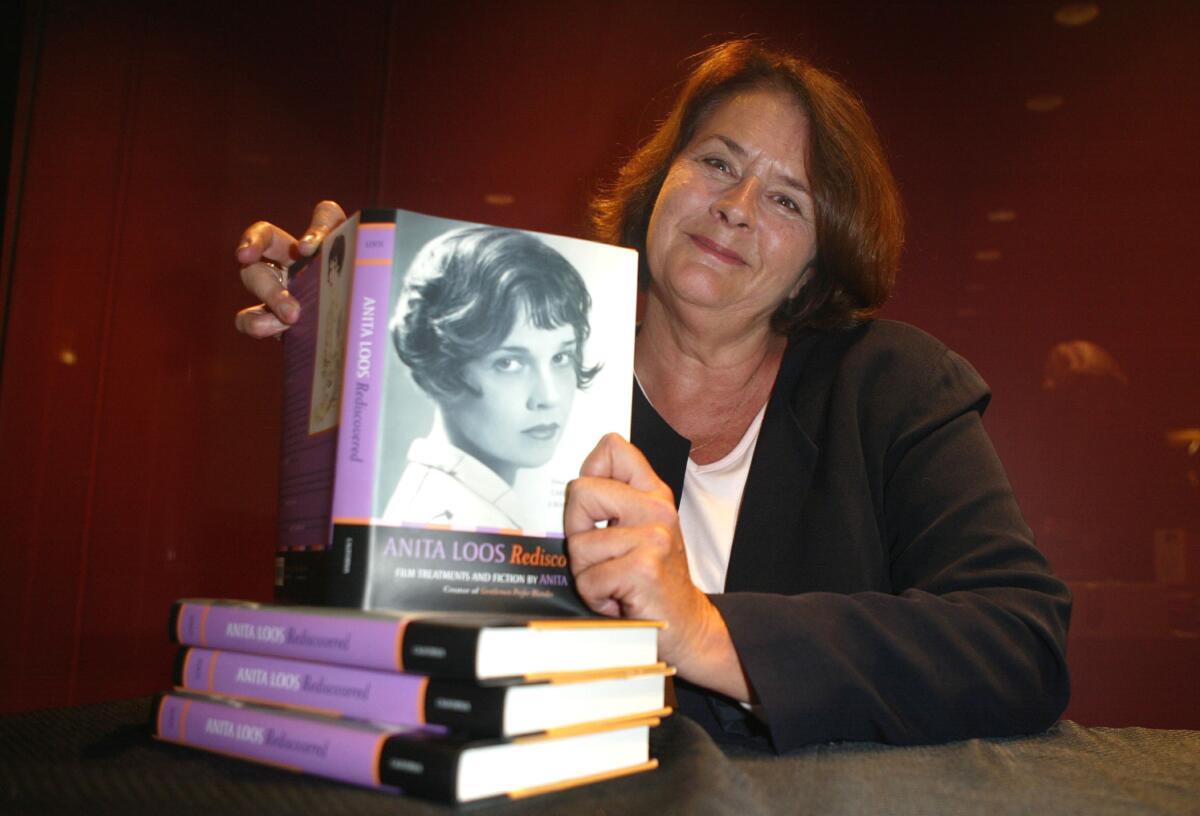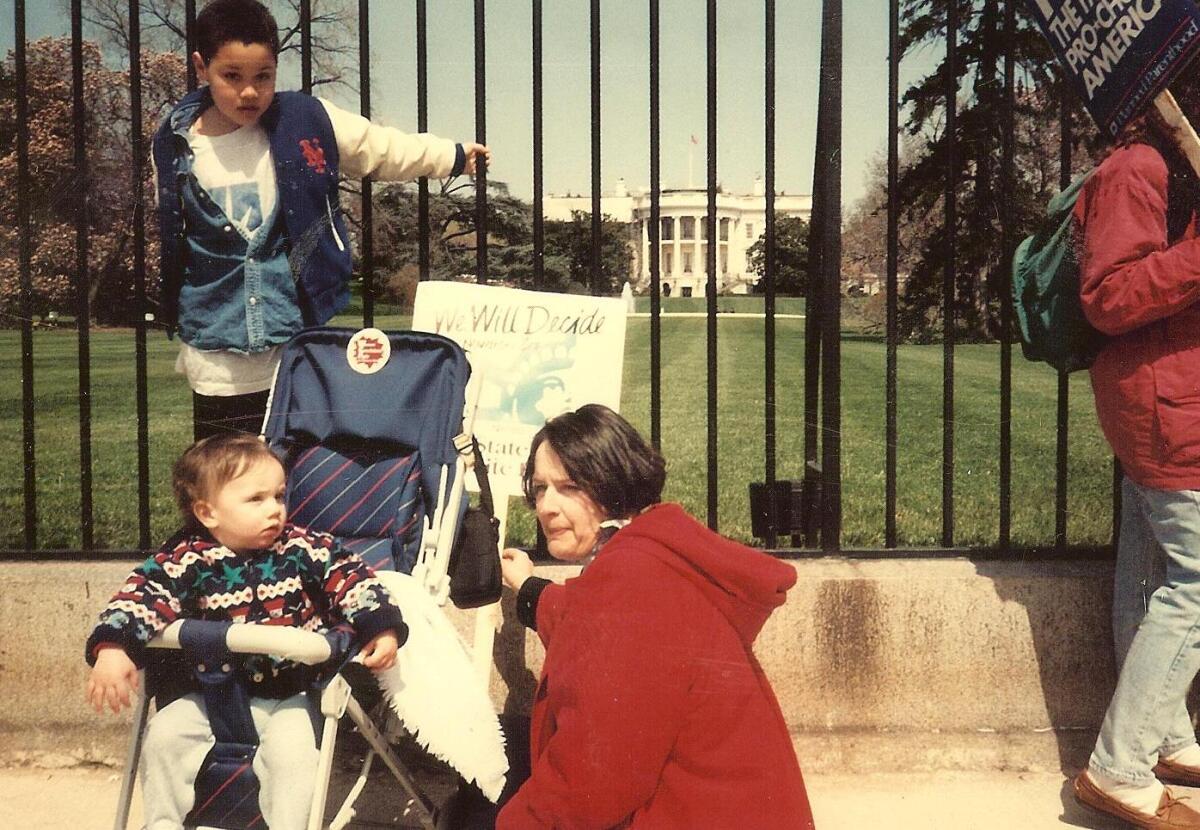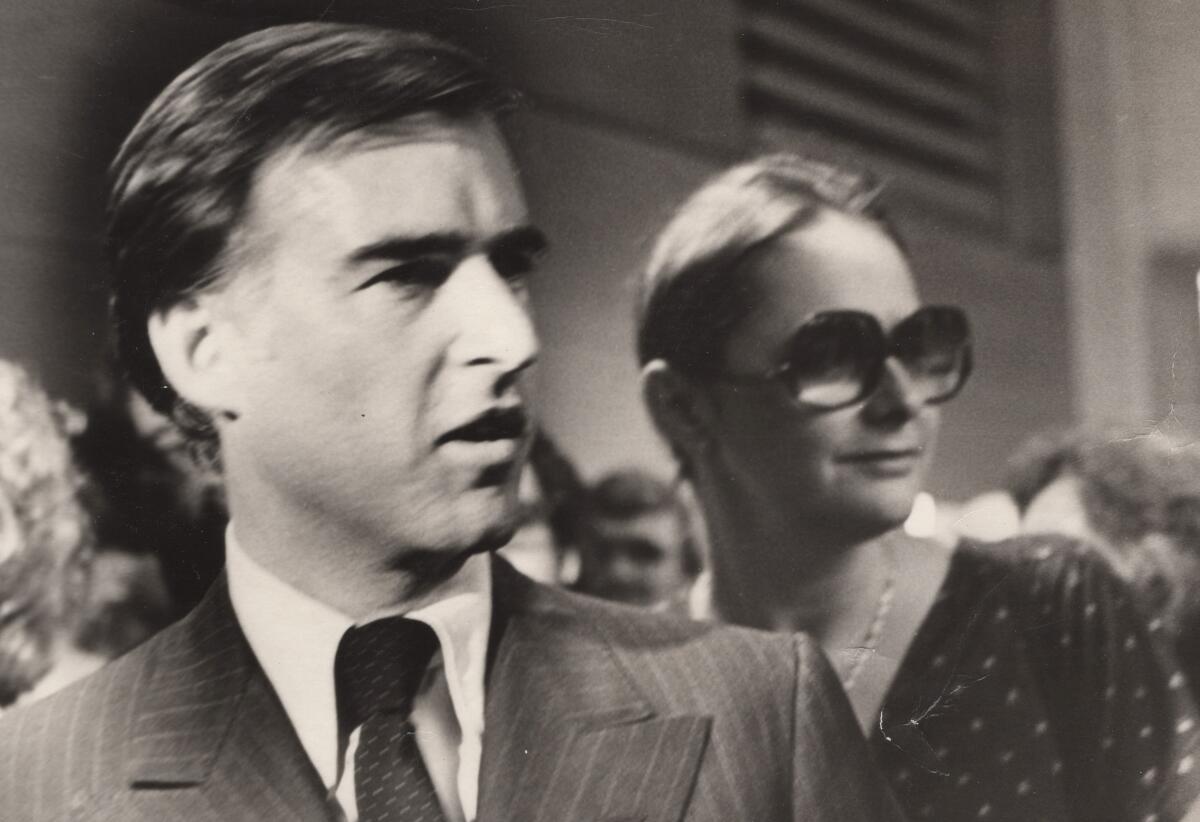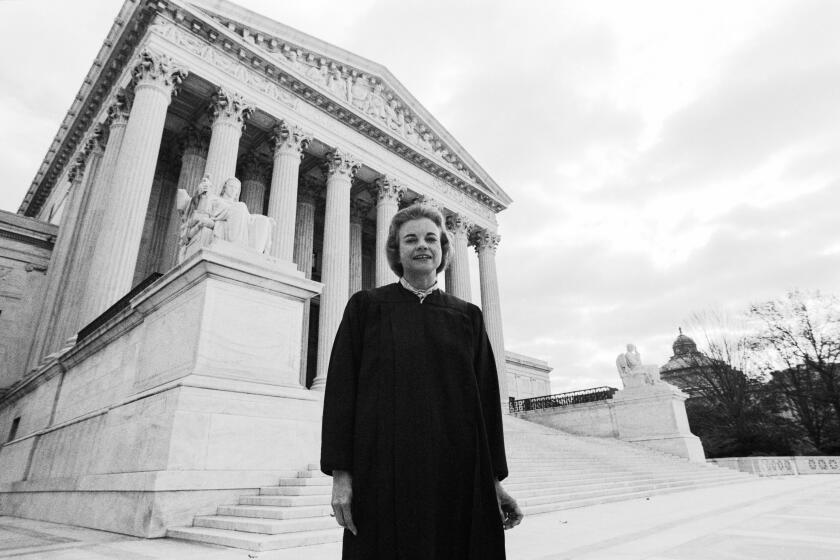Cari Beauchamp, L.A. fixture and author who redefined women in Hollywood, dies at 74

- Share via
Cari Beauchamp, a Hollywood historian and celebrated author who illuminated the ways women were instrumental in shaping the film industry, died Dec. 14. She was 74.
Her son Jake Flynn confirmed to The Times that Beauchamp died of natural causes at Cedars-Sinai Medical Center in Los Angeles.
Flynn described his mother, author of such books as “Without Lying Down” and “Adventures of a Hollywood Secretary,” as someone whose hard-fought success boiled down to a passion for storytelling and truth-telling, especially when it came to illuminating underappreciated women. Beauchamp was a time-traveler in the best sense of the term, often saying things such as “I’m off to 1929” before spending time with her “dead girlfriends” — researching the remarkable women of Hollywood yore.
Among the living, the family dinner table at their West L.A. home was often host to a colorful cast of characters, Flynn said. Sometimes an elected official sat at one end of the table, an acclaimed screenwriter at the other, while Beauchamp’s friends from elementary school sat beside her.
“I’ve gotten a lot of firsthand accounts in the last few days of how both in a professional sense, and also in a deeply personal sense, her loss is a big loss for the Hollywood history community,” Flynn told The Times over the phone Thursday.
Beauchamp became a fixture at the Los Angeles Times Festival of Books, frequently judging in the biography category of the Book Prizes and regularly moderating panels. In her last appearance at the festival in 2022, she moderated a panel on “Comedy Through the Ages” that included Mark Harris, Mark Haskell Smith and James Curtis. She brought to such appearances, according to Flynn, “a very strong love of institutional memory.”
‘Mank,’ with 10 Oscar nominations, creaks under the weight of historically inaccurate cliches that obscure women’s contributions to early Hollywood.
Beauchamp found it particularly thrilling to give lectures at such venues as the TCM Classic Film Festival and the Academy of Motion Picture Arts and Sciences, at which guests might exclaim, “I had no idea that this world existed!”
“Cari was not only a force of nature, she was a force for good in the film world,” said former Times film critic Kenneth Turan. “No one cared more about getting things right and doing the right thing than she did.”
Beauchamp launched her career as an author at 40, while pregnant with her youngest son, publishing “Hollywood on the Riviera: The Inside Story of the Cannes Film Festival” alongside Henri Béhar in 1992. Her 1998 book, “Without Lying Down: Frances Marion and the Powerful Women of Early Hollywood,” brought attention to the pivotal role of women in classic cinema. (The title came from Marion’s famous answer to why she was single: She was “searching for a man to look up to without lying down.”)
“It is so liberating to know that half of all films written before 1925 were written by women,” she told the YouTube channel My Hero Project in 2017. “Oftentimes, half the directors were women at Universal. Half the writers in MGM were women. The power of these women behind the camera was so incredible back in the ’20s and ’30s.”
Beauchamp dove into her research in myriad ways, digging through library shelves at the film academy’s Margaret Herrick Library, the Library of Congress archives and other repositories of buried information. Not only did she discover that women wrote half the films in Hollywood’s infancy; she also revealed how the men who ran Hollywood studios thereafter effectively erased their contributions. Marion, the highest-paid screenwriter in Hollywood at the time, wrote the Oscar-winning movies “The Big House” and “The Champ” and more than 200 scripts besides — and yet no one seemed to know much about her. Until Beauchamp stepped in.
Retired Supreme Court Justice Sandra Day O’Connor has died at age 93. She was the first woman to ascend to the high court.
Beauchamp said she could look at any paragraph in “Without Lying Down” and spot five different sources for the information therein. “It’s like a giant jigsaw puzzle,” she said. “You do a little bit of the clouds, you do a little flowers, you do a little bit and then gradually, it all comes together.” The book was named one of the 100 Most Notable Books of the Year by both the Los Angeles Times and the New York Times and was awarded Book of the Year by the National Theater Arts Assn.

In 2000, she also produced and wrote the documentary “Without Lying Down” for Turner Classic Movies — which, according to Beauchamp, only put up half the money, leaving her on the hook to raise the remaining $100,000. She turned to Playboy magazine founder Hugh Hefner. “If you ever want to hear an audience laugh,” she told My Hero Project, “I was screening it at the [British Film Institute] on the big screen in London, and it says: Hugh Hefner Presents Without Lying Down.” The documentary landed her a nomination for a Writers Guild Award.
Born Sept. 12, 1949, in Berkeley, Beauchamp was raised in Stockton. From a young age, she was interested in what happened behind the scenes of her favorite films and television shows. “I’ve always been a credit reader, since I was a little kid,” she told My Hero Project. “I remember discovering that the producer of Perry Mason was a woman named Gail Patrick Jackson, and I got so excited. I was like 8 years old, [and I thought] a girl could do this? A woman can do this!”
Conventional wisdom has it that feminism is dead.
Beauchamp graduated with a bachelor’s degree in political science and American history from San Jose State University in 1972; she spent the next six years as a private investigator.
During that time, she became a political activist in the women’s rights movement. In 1973, she was elected the first president of the National Women’s Political Caucus of California, an organization founded to “recruit, train and run female, pro-choice candidates for public office,” according to Beauchamp, who looked back on her work in an article for The Times in 1998.
“In that initial meeting, some of us knew each other from various antiwar or presidential campaigns, but this was the first time we had come together to organize ourselves, for ourselves,” Beauchamp wrote of the organization, in which she worked alongside Gloria Steinem and Bella Abzug. “We hardly looked threatening; but what I remember most clearly was our passion.
“Starting as a small whirlwind, we grew in size and force to achieve a variety of ‘firsts.’ In 1974, Leona Egeland was elected to the state Assembly, the first woman to be elected without first replacing a dead husband. That year, Janet Gray Hayes was elected mayor of San Jose, the first woman in the nation to govern a city of more than 500,000.”

In 1979, Beauchamp made her way back to her home state, where she served as press secretary to Gov. Jerry Brown.
Beauchamp was married twice; her first marriage ended in divorce.
In addition to “Without Lying Down,” Beauchamp wrote and edited several other books, including “Anita Loos Rediscovered” (2003), “Adventures of a Hollywood Secretary” (2006) and “Joseph P. Kennedy Presents: His Hollywood Years” (2010). She also wrote the Emmy-nominated 2003 PBS documentary “The Day My God Died,” which depicted the lives of sex-trafficked young girls alongside those who fought to abolish child sex slavery.
Tiger Beat was the first magazine to publish Beauchamp’s writing, when she was 16. She went on to contribute to the Los Angeles Times, Vanity Fair, Architectural Digest, Variety, the Hollywood Reporter and the New York Times. Beauchamp was twice named an Academy of Motion Picture Arts and Sciences film scholar. She also served as the resident scholar of the Mary Pickford Foundation.
Hollywood gossip columnists, fan magazines and industry trade papers were the 20th century versions of today’s Internet bloggers and 24/7 cable TV coverage.
In recent years, Beauchamp taught in the Los Angeles-based Stephens College M.F.A. program for TV and screenwriting — the first of its kind to focus on bringing more female writers into mainstream Hollywood. “It was one of the joys of her life toward the last few years,” Flynn told The Times, noting that she’d often say: “These are the things I wish someone had taught me.”
“If she could help you in your quest,” Flynn added, “whether it’s in politics, publishing, getting a book done or connecting with an editor — her Rolodex was your Rolodex.”
Beauchamp is survived by her two sons, Flynn and Teo Beauchamp.
More to Read
Sign up for our Book Club newsletter
Get the latest news, events and more from the Los Angeles Times Book Club, and help us get L.A. reading and talking.
You may occasionally receive promotional content from the Los Angeles Times.









